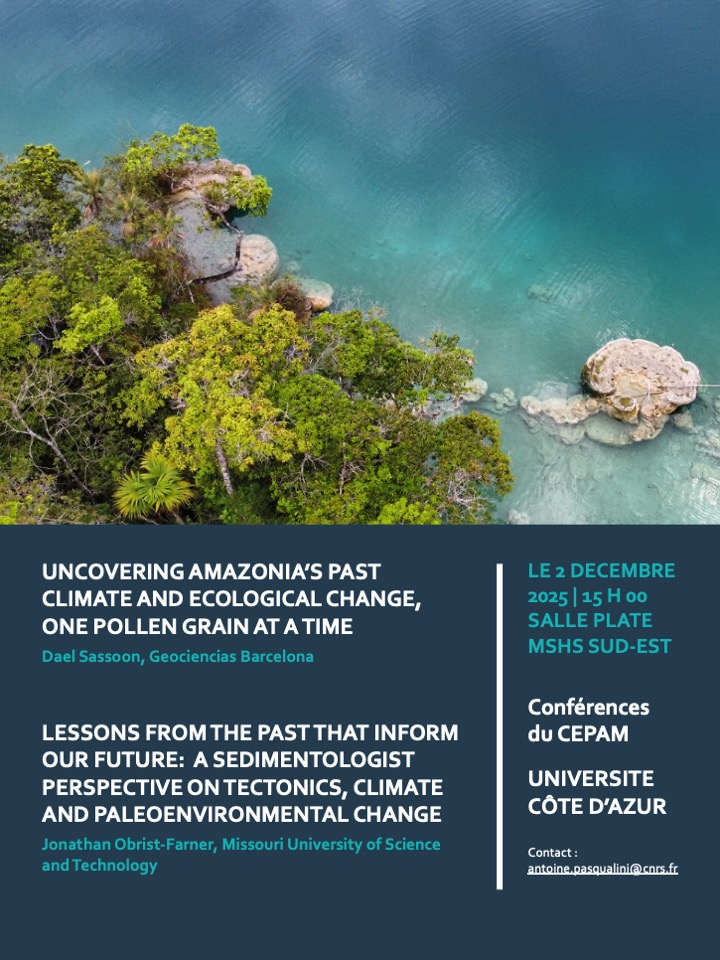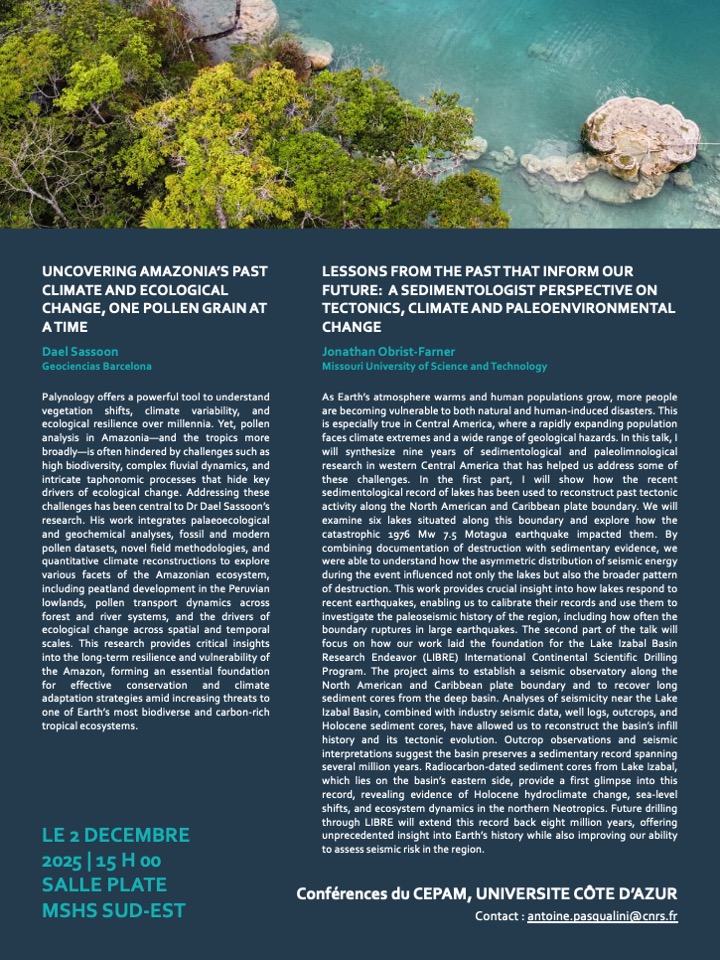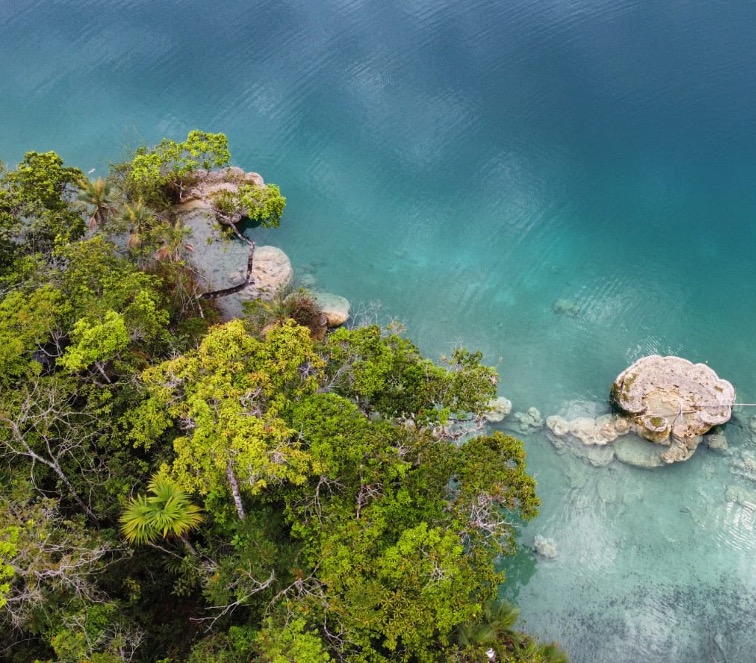Contact : antoine.pasqualini@cnrs.fr
Uncovering Amazonia’s Past Climate And Ecological Change, One Pollen Grain At A Time – Dael Sassoon (Geociencias Barcelona)
Palynology offers a powerful tool to understand vegetation shifts, climate variability, and ecological resilience over millennia. Yet, pollen analysis in Amazonia—and the tropics more broadly—is often hindered by challenges such as high biodiversity, complex fluvial dynamics, and intricate taphonomic processes that hide key drivers of ecological change. Addressing these challenges has been central to Dr Dael Sassoon’s research. His work integrates palaeoecological and geochemical analyses, fossil and modern pollen datasets, novel field methodologies, and quantitative climate reconstructions to explore various facets of the Amazonian ecosystem, including peatland development in the Peruvian lowlands, pollen transport dynamics across forest and river systems, and the drivers of ecological change across spatial and temporal scales. This research provides critical insights into the long-term resilience and vulnerability of the Amazon, forming an essential foundation for effective conservation and climate adaptation strategies amid increasing threats to one of Earth’s most biodiverse and carbon-rich tropical ecosystems.
Lessons From The Past That Inform Our Future: A Sedimentologist Perspective On Tectonics, Climate And Paleoenvironmental Change – Jonathan Obrist-Farner (Missouri University of Science and Technology)
As Earth’s atmosphere warms and human populations grow, more people are becoming vulnerable to both natural and human-induced disasters. This is especially true in Central America, where a rapidly expanding population faces climate extremes and a wide range of geological hazards. In this talk, I will synthesize nine years of sedimentological and paleolimnological research in western Central America that has helped us address some of these challenges. In the first part, I will show how the recent sedimentological record of lakes has been used to reconstruct past tectonic activity along the North American and Caribbean plate boundary. We will examine six lakes situated along this boundary and explore how the catastrophic 1976 Mw 7.5 Motagua earthquake impacted them. By combining documentation of destruction with sedimentary evidence, we were able to understand how the asymmetric distribution of seismic energy during the event influenced not only the lakes but also the broader pattern of destruction. This work provides crucial insight into how lakes respond to recent earthquakes, enabling us to calibrate their records and use them to investigate the paleoseismic history of the region, including how often the boundary ruptures in large earthquakes. The second part of the talk will focus on how our work laid the foundation for the Lake Izabal Basin Research Endeavor (LIBRE) International Continental Scientific Drilling Program. The project aims to establish a seismic observatory along the North American and Caribbean plate boundary and to recover long sediment cores from the deep basin. Analyses of seismicity near the Lake Izabal Basin, combined with industry seismic data, well logs, outcrops, and Holocene sediment cores, have allowed us to reconstruct the basin’s infill history and its tectonic evolution. Outcrop observations and seismic interpretations suggest the basin preserves a sedimentary record spanning several million years. Radiocarbon-dated sediment cores from Lake Izabal, which lies on the basin’s eastern side, provide a first glimpse into this record, revealing evidence of Holocene hydroclimate change, sea-level shifts, and ecosystem dynamics in the northern Neotropics. Future drilling through LIBRE will extend this record back eight million years, offering unprecedented insight into Earth’s history while also improving our ability to assess seismic risk in the region.
Rencontres scientifiques à venir
Consulter toutes les rencontresSéminaire | Paléoenvironnements et sociétés dans les milieux tropicaux
Séminaire du Groupe de Recherche FORÊTS
Séminaire | Des témoins funéraires à la caractérisation des organisations sociales
Séminaire du GR EPICS (Épistémologie et construction des savoirs)
Appel à communication | Histoires d'eau
150e Congrès national des sociétés historiques et scientifiques





